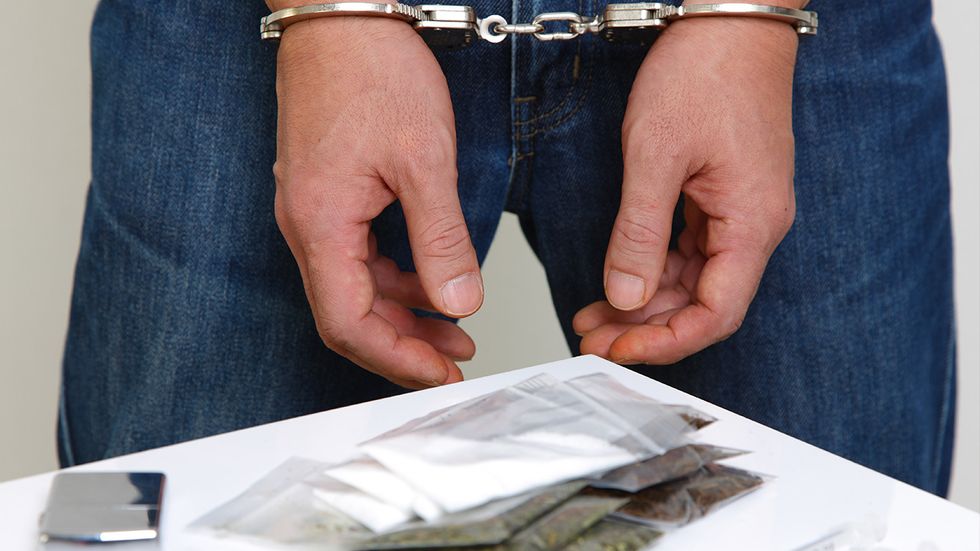
San Francisco reportedly plans to use a new California marijuana law to expunge or reduce misdemeanor and felony drug charges dating back as far as 1975 (deeepblue/GettyImages)

San Francisco plans to use a new California marijuana law to expunge or reduce misdemeanor and felony drug charges dating back as far as 1975, the Los Angeles Times reported.
In San Francisco, nearly "5,000 felony marijuana convictions will be reviewed, recalled and re-sentenced, and more than 3,000 misdemeanors that were sentenced prior to Proposition 64's passage will be dismissed and sealed," District Attorney George Gascón said, the Times reported.
Proposition 64, which voters approved in 2016, allows people to legally possess and purchase up to an ounce of marijuana and to grow up to six plants for personal use. Also, people, whose marijuana possession crimes are eliminated by Proposition 64, can petition the courts to have their records expunged, provided they are not deemed to be a risk to public safety.
"While drug policy on the federal level is going backwards, San Francisco is once again taking the lead to undo the damage that this country's disastrous, failed drug war has had on our nation and on communities of color in particular," Gascón said in a statement. "Long ago we lost our ability to distinguish the dangerous from the nuisance, and it has broken our pocketbooks, the fabric of our communities, and we are no safer for it."
Gascón said San Francisco is being pro-active instead of waiting for the community to take action.
The move was celebrated by San Francisco's gay community, which has advocated the use of marijuana for medical purposes such as easing the symptoms of people suffering from AIDS, the report said. Members of San Francisco's Castro district — one of the first gay neighborhoods in the U.S. — have long advocated the legalization of marijuana for medical purposes, the Times noted.
Dennis Peron, who died Saturday at age 72 following a battle with cancer, was regarded as a key figure in the use of marijuana for AIDS patients. In 1991, he co-founded the San Francisco Cannabis Buyers' Club, the first public marijuana dispensary in the country.
"God knows how many convictions Dennis had," said San Francisco Supervisor Jeff Sheehy, who represents the Castro District.
Had Peron lived longer, "he'd have had many of his convictions expunged," Sheehy added.
State Sen. Scott Wiener (D), who represents San Francisco, also noted the historic significance of the city's move.
The Castro District "was so deeply impacted by the AIDS epidemic. So many people were getting sick and dying, and medical cannabis was a lifeline for many people living with AIDS — a way for people to help with the side effects of the medication, to help with nausea, to help improve their appetite," Wiener said.
San Francisco was also praised for attempting to reduce what many legal observers have considered excessive punishment for black people convicted of marijuana-related crimes. A 2016 study by New Frontier Data, for example, found that white, black and Latino people consume and sell marijuana at similar rates. But nearly one-quarter of all people jailed for the offenses are black. New Frontier Data is a data analytics firm focused on the "cannabis industry."
In a statement, California Lt. Gov. Gavin Newsom, the former mayor of San Francisco, said the city's policy provides "new hope and opportunities to Californians, primarily people of color, whose lives were long ago derailed by a costly, broken and racially discriminatory system of marijuana criminalization."
Eliminating the charges is seen as a way to clear crimes that can make it difficult for people to obtain employment and housing, according to the Times.